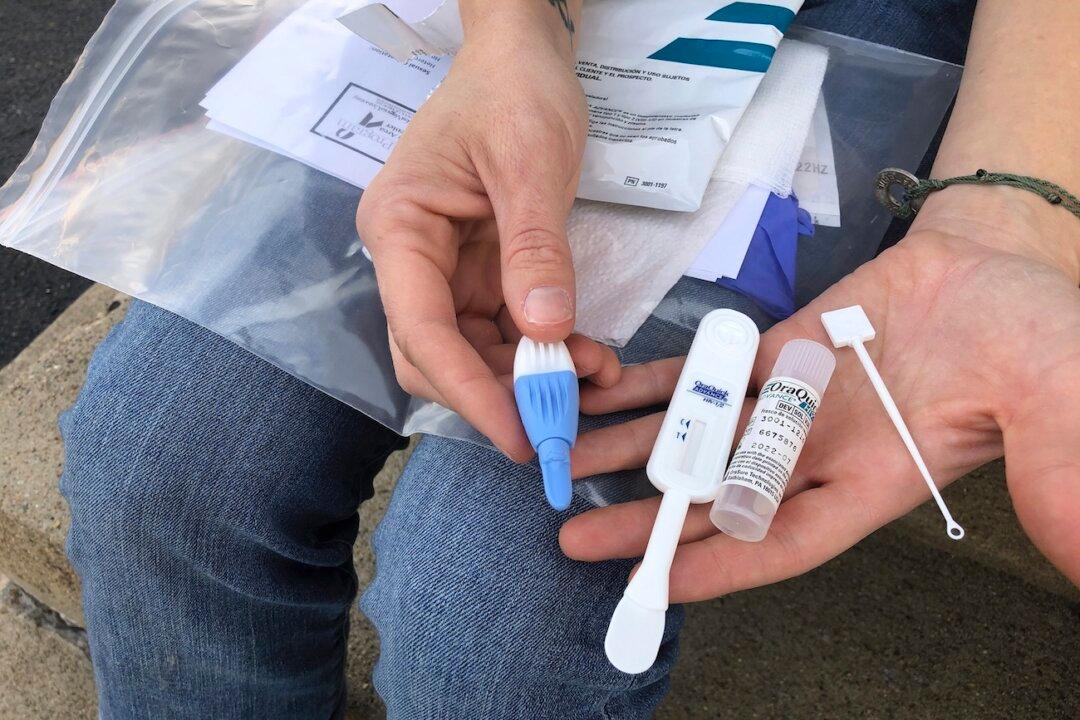CHARLESTON, W.Va.—U.S. Sen. Joe Manchin on Monday submitted a congressional inquiry with the Centers for Disease Control and Prevention (CDC) regarding an HIV outbreak in West Virginia’s largest county.
The West Virginia Democrat asked for the inquiry on behalf of the Kanawha County Commission two months after a CDC official warned that the county’s outbreak was “the most concerning in the United States.”





